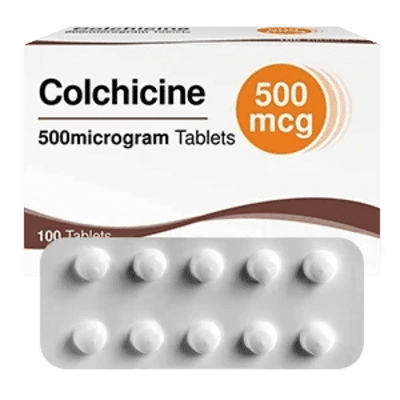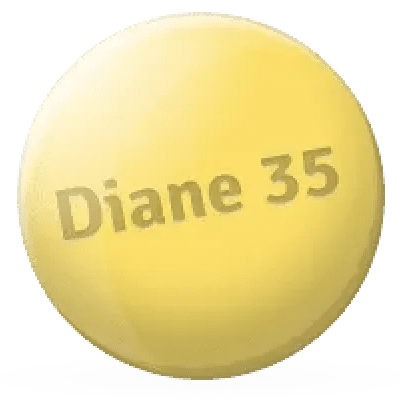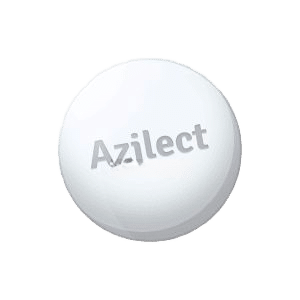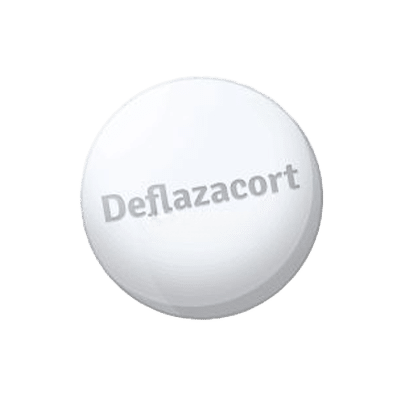
Colchicine
3 customer reviewsWhat is it?
Colchicine – what is it? It is a medicine that is commonly used to treat and prevent pain associated with gouty arthritis. Although Colchicines primary use is for gout, there are times when it is prescribed by a doctor for other conditions that require reducing inflammation.
Composition
Composition Colchicine is an active substance that works to relieve the symptoms of gout. During treatment, this drug reduces inflammation and pain in the joints, making it vital for many patients. It is important to note that the composition of Colchicine involves interaction with other elements that may be present in the dosage form.
- Active ingredient: colchicine
- Treatment instructions from the doctor are based on the individual needs of the patient
- Possible excipients, including fillers and stabilizers
The unique formula of the drug ensures its medical effectiveness, but also requires careful adherence to the doctors recommendations to avoid possible side effects.
How to use?
Using Colchicine requires care and adherence to doctors orders. The drug should be taken orally, regardless of food intake, which makes it convenient to use in any setting. However, there are certain points that must be observed to increase the effectiveness of treatment and prevent adverse reactions.
- Take the medicine strictly as prescribed by your doctor. Do not increase the dosage without consulting a specialist.
- Avoid consuming grapefruit or its juice, as this can increase the effect of Colchicine and lead to side effects.
- If you miss a dose, take it as soon as possible, but if it is already time for the next dose, do not double the dose to compensate for the missed one.
The process of taking may be accompanied by the emergence of questions, and it is always worth discussing them with your doctor to achieve the best treatment result.
How does it work?
Colchicine works by reducing the inflammation that occurs in response to uric acid crystals in the joints. In short, Colchicine works by inhibiting the migration of white blood cells to the site of inflammation, which reduces pain and swelling. However, it is important to remember that it does not reduce uric acid levels in the blood, it only controls inflammation.
Understanding Colchicine’s mechanism of action helps us understand why it is effective in treating gout, but it also highlights the need to use it in combination with other treatment approaches to control uric acid levels. This means that a comprehensive approach involving diet and other medications may be recommended.
Indications
Indications for the use of Colchicine are mainly related to specific conditions, such as gout. However, doctors may also recommend it in certain circumstances, based on their professional experience and the patients condition.
- Treatment of an acute attack of gouty arthritis
- Prevention of relapses of gout
- Lesions of joints and soft tissues caused by the deposition of uric acid crystals
These indications can be expanded by the doctor depending on the individual needs of the patient, so if you have any doubts about the use of Colchicine, you should discuss them with your doctor.
Contraindications
Contraindications for the use of Colchicine are also important for patients, as it helps to avoid adverse reactions and complications. Patients should be informed of possible restrictions and consult a doctor before starting treatment.
- Allergy to components of the drug
- Severe liver or kidney dysfunction
- Pregnancy and lactation, if the risk to the fetus exceeds the expected benefit
Knowledge of these contraindications allows patients and doctors to be more prepared and attentive during treatment.
Side effects
Colchicine side effects can vary in strength and frequency, but it is important to be prepared for possible adverse reactions. They are usually mild to moderate, but there are also serious ones that require immediate medical attention.
- Gastrointestinal disorders: diarrhea, nausea, abdominal pain
- Allergic reactions: rash, hives, itching
- Blood disorders: fatigue, unusual bleeding
It should be remembered that if particularly strong reactions occur, it is important to seek medical attention. Keep in mind that some side effects can significantly affect your general well-being and require dose adjustment or drug discontinuation.
Frequently asked questions
Reviews and Experiences
The medicine has proven to be an integral part of my gout treatment. I simply cannot imagine how I would cope with the pain without it. It is magic at a reasonable price.
After a course of Colchicine, I noticed a significant improvement. Gout began to bother me much less often. Of course, you shouldnt forget about monitoring your diet, but the medicine does its job perfectly.
The effectiveness of Colchicine is obvious, but I sometimes had side effects. But following the doctors recommendations, I managed to minimize them, and the benefits of the drug are much greater than the inconveniences.



